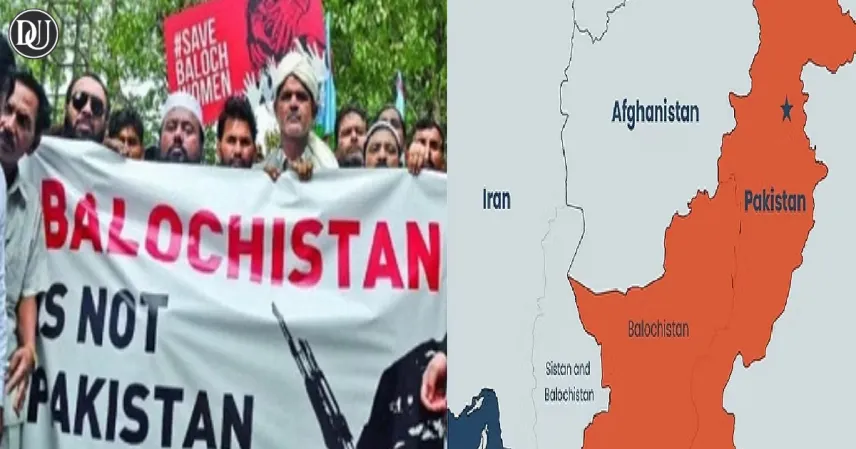In a bold and unprecedented move, Baloch activists led by exiled leader Mir Yar Baloch have declared independence from Pakistan, proclaiming the formation of the republic of balochistan. The announcement, made on May 9, 2025, and widely publicized on May 14, has sent shockwaves through South Asia, with serious implications for Pakistan, China, and regional stability.
Mir Yar Baloch, speaking on behalf of the Free Balochistan Movement (FBM), declared that the republic of balochistan has never been an integral part of Pakistan, citing decades of alleged atrocities by the Pakistani state including air bombings, enforced disappearances, and what he described as "genocide." In his address, he appealed to international bodies such as the United Nations to immediately recognize the republic of balochistan as an independent nation and to deploy peacekeeping forces to protect the Baloch people from further persecution.
Related Article : Balochistan’s First Hindu Woman Breaks Barriers
The FBM has also requested symbolic diplomatic support from India, asking the Indian government to rename the historic Jinnah House in Mumbai as "Balochistan House." Additionally, they appealed for the establishment of a Baloch embassy in New Delhi, signaling their intent to build international alliances under the republic of balochistan framework.
The declaration has been accompanied by a significant surge in militant activity. The Baloch Liberation Army (BLA), a prominent separatist group, launched "Operation Herof 2.0," a widespread campaign involving 78 attacks across 58 locations. These operations targeted Pakistani military outposts and security infrastructure. The BLA claims the offensive is a response to decades of state aggression and a means of defending their claim to the republic of balochistan.
The group emphasized its alignment with India’s counter-terrorism stance and denied being a foreign proxy, stating its actions are rooted in indigenous resistance and are meant to defend the sovereignty of the republic of balochistan. They have further accused Pakistan of harboring internationally designated terrorist groups and condemned it as a "terrorist state."
The announcement of the republic of balochistan has deeply alarmed both Pakistan and China. Balochistan, Pakistan’s largest and most resource-rich province, holds immense strategic value. It is home to the Gwadar Port, a linchpin of the multi-billion-dollar China-Pakistan Economic Corridor (CPEC). The ongoing insurgency threatens these critical economic interests and strengthens the position of the republic of balochistan movement.
Beijing sees the instability in Balochistan as a direct threat to its Belt and Road Initiative. With its growing presence in the region, China fears the republic of balochistan insurgency could compromise key infrastructure investments. Chinese nationals and projects have frequently been targeted by Baloch militants who oppose foreign exploitation in the territory they now consider the republic of balochistan.
Islamabad, on the other hand, has dismissed the claim of independence and labeled the republic of balochistan movement as foreign-fueled subversion. Pakistani authorities have launched intensified military operations to counteract the insurgency and regain control over areas under threat from republic of balochistan fighters.
Despite not receiving formal recognition from any country or international institution, the declaration of the republic of balochistan has garnered widespread attention. From Baloch diaspora communities to foreign policy think tanks, the republic of balochistan has become a rallying point for debates on self-determination, regional stability, and international diplomacy.
As tensions rise and the republic of balochistan movement gains momentum, the eyes of the world remain fixed on this rapidly unfolding situation. The coming weeks will be crucial in determining whether the republic of balochistan will remain a symbolic proclamation or evolve into a recognized geopolitical entity.










